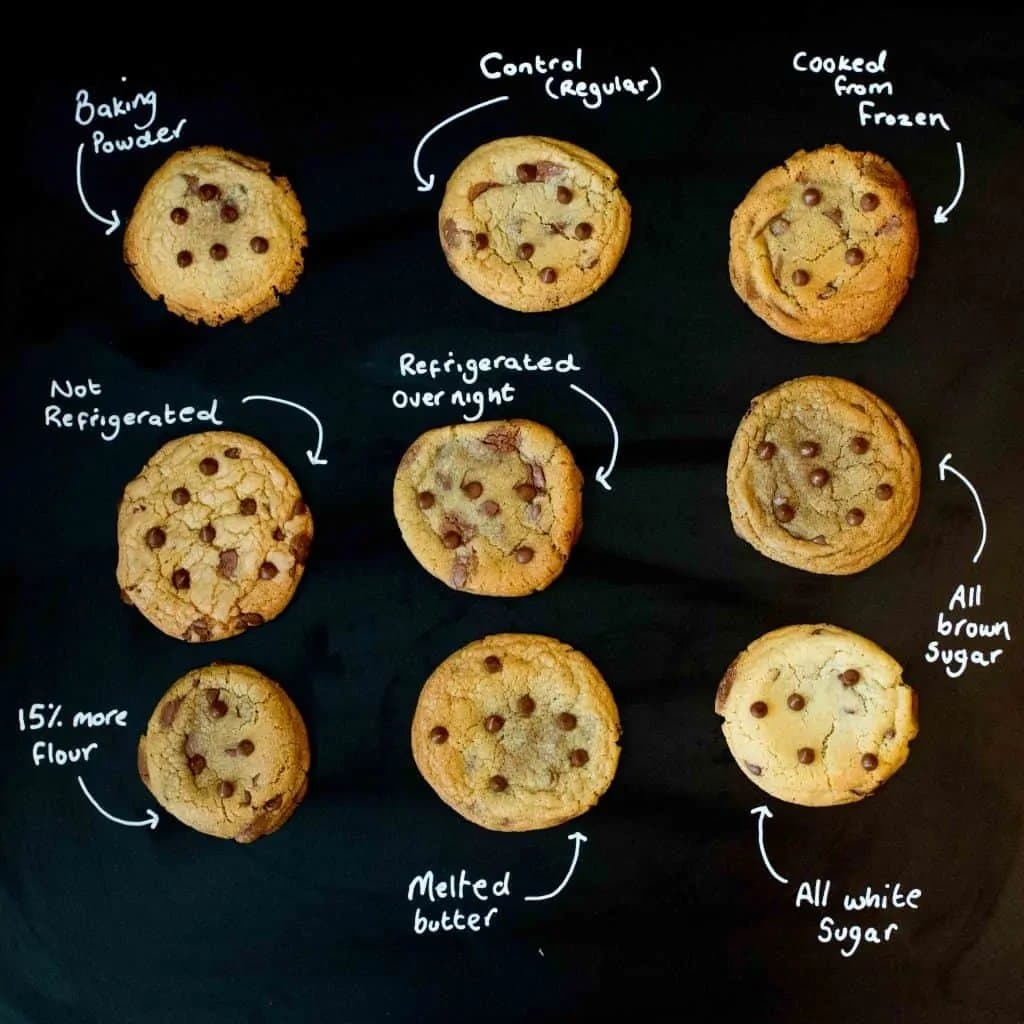🧵 View Thread
🧵 Thread (22 tweets)

I'm going to elaborate a bit on this model of what a goal becomes when you remove a key ingredient from the recipe. https://t.co/5bUIovBs2F

This is inspired by those experiments where someone tries baking cookies with a bunch of variations on ingredients & process. https://t.co/sPmz4aGiB2 https://t.co/UFZjzvT2h7


Also, caveat: words mean different things contextually. This is just my definition. Well, technically, it's the shared definition we use in the framework for our Goal-Crafting Intensive workshops 👇 but anyway. https://t.co/8Ghoz8goUL

1🛣️ no recognizable state = "trajectory" This one is kind of odd to start with, because moreso than the others, it doesn't necessarily lead to wasted effort. In fact, if you want to explore, whether a new city or a new industry, simply following your appetite can be lovely!

2🛣️ no recognizable state = "trajectory" However, consider a vague state like "successful business". If you haven't clarified whether that's measured in $, impact, or personal autonomy, it'll be hard to recognize if you're going off-track from what you really care about.

3🛣️ no recognizable state = "trajectory" Robert Fritz's creative tension model & the perceptual control model of the brain both require a comparison between "what is so" & "what is wanted" Want can be implicit, but works better when explicit! (as long as you don't get fixated)

1😣 not desired = "should" This is classic. A lot of the stuff most people have on their to-do lists is not something they feel any sense of motivation towards. It's more like "I don't want to NOT have done this" (which would mean failing my classes, being fired, paying fees)

2😣 not desired = "should" Even with something like "doing my taxes" though, it's possible to have an orientation that's like "well, given that I will eventually do my taxes, how can I orient towards wanting the spaciousness I know I'll feel when they're done?"

3😣 not desired = "should" Sometimes though, if you reflect on it, you might conclude: this isn't what *I* want, it's what my parents wanted for me. I don't have to do this, and *I'm not gonna.* This could be as small as sending an email or as large as a career change.

1👀 not future = "regret" On one level, obviously "the future" is the only time you can achieve a goal, but peoples' thinking often involves a lot of stressing about the present already being the way that it is, rather than accepting the present and saying "where to from here?"

2👀 not future = "regret" Common example: fitness goals. Setting a weight goal causes someone to pay more attention to their body, which activates shame and a feeling of "I should already be thinner/stronger!" Hard to stay in touch with the future & the learning process.

3👀 not future = "regret" What I've said about regret in this thread has mostly been at a very high-level; there's also a mindset-shift available here that is a worthwhile deep-dive as well: https://t.co/3Pzq3t9oHW

I wrote a long-form post on Transcending Regret, Problems, and Mistakes, exploring this ~koan: > "If you had a chance for a do-over, would you choose for everything to go exactly the same? > If not, you have not yet surrendered." https://t.co/mY8DDRb1mJ

1☁️ no action = "dream" We defined a goal as something that causes you to take action. This is a way to highlight that a lot of people have "goals" that are sort of floating around not actually motivating them to do anything. "Feeling bad about not doing it" doesn't count 😉

2☁️ no action = "dream" Classic examples are "learn a language or musical instrument" or " Often dreams are bottlenecked on a decision: - *which* language or instrument? - how to get started? - when to practice?

3☁️ no action = "dream" You might be conflicted or have fears about your goals, in a way that makes it hard to act on them directly. However, they're still goals (not dreams) if you're taking the best action available towards resolving that internal conflict!

1🤠 actions just for show = "signalling" However, sometimes you might be taking actions, but any reasonable assessment shows that those actions aren't ever going to really move the needle on the goal. Maybe poor strategy, but if you *know* useful actions but don't do them...

2🤠 actions just for show = "signalling" Signalling occurs when someone wants to "be an author" more than they want to actually write, publish, etc. They buy notebooks, spend time in cafés with a blank page open, & talk a lot about writing—all of which are actions, but... 🤨

3🤠 actions just for show = "signalling" Signalling usually is related to the other failure modes above: - trajectory: actions aren't going anywhere because no "where" to go - should: "if I stop trying, people will judge" - regret: trying to show you care about past mistake

Okay, I hope reading that was as fun for you as writing it was for me! And moreover, illuminating. Here's the original structure again, to put it all back together: https://t.co/5bUIovT3rf

Also worth pointing out a few ingredients that (from my perspective) *aren't* vital for goals. https://t.co/7PmS2GIuUX

This is a very spacious meaning for "goal". It doesn't require: 📅 a due date (usually embarrassingly over-optimistic) #️⃣ a numerical metric (which is just a proxy for what really matters) 🏁 a state of finality (it has to be in the future, but it can be ongoing)

More questions? Want to talk about your specific situation? Sign up for our online workshop on Feb 29 or Mar 1, and me & other coaches will work with you directly: https://t.co/1pNG2MS2Ha

this thread is now also a video! (not verbatim reading it out, but basically riffing off it as an outline) https://t.co/O7PVoz2Eo3